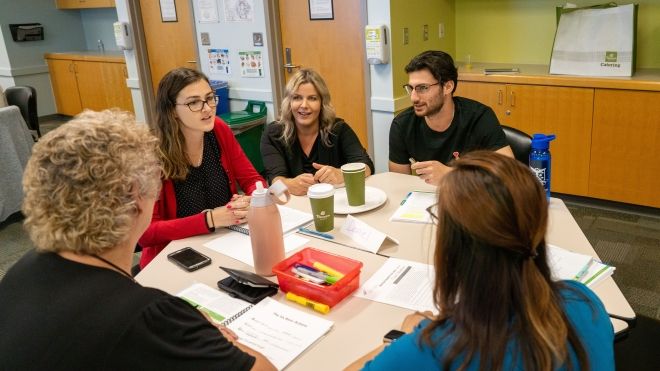
It’s hard to make a change of any kind.
We were all forced to drastically change our lives over the past three months and making slow changes back from this new normality also won’t be an easy process.
But when we choose to make a change, there’s been an overarching theory in psychology for years that we go through six stages before the change actually takes place (Prochaska & DiClemente 1986).
In the Mental Health First Aid course I teach, we teach these stages as a way to show how anyone living with a mental illness who wants to seek help will often go through six stages of change during their recovery process. These stages can be applied to any situation where you want to make a change including exercising more, eating healthier, quitting smoking, or getting help for depression or other mental illness.
- Precontemplative Stage: This stage is like the prequel stage. The person is unaware that they need to change their actions. For example a person who does not yet feel their drinking is a problem and so there is no reason for them to change this behaviour. Best techniques for someone in this phase is validate that they are not ready to change, but encourage they continue to self explore their behaviour and how it might be negatively impacting their life.
- Contemplative Stage: After self exploring, the person is now starting to think “Hmmmm maybe I do need to change”, but they still are not ready to take the steps needed to change. This could be a person who knows that they have depression, but is not ready to call their doctor or speak to someone about it yet. They know there is an issue, but don’t want to confront it. Often people in this phase need to hear the pros and cons of changing their behaviour. Pros are they will feel much better, that 80% of people who seek help respond well to treatment, that it takes effort but they could do the things they love to do again. Cons are if they don’t reach out for help they will continue to suffer, their health will get worse, and it could affect their social relationships and work life.
- Preparation Stage: Here the person has decided to make a change. Now is when they will be receptive to setting up doctors appointments, talking to counsellors, trying to focus on changing their health for the better. This stage is the first 3-4 months of changing the behaviour, generally with the assistance of coaches, counsellors, doctors and other people on a regular basis. At this stage it’s best to encourage small steps, not to change everything but focus on the things we really want to change.
- Action Stage: This is the 3-6 month period after making the initial change. This would be the person who has completed 12-16 weeks of therapy, has seen their doctor, and now has to actively follow what they’ve learned without as much assistance. Best ways to help here are help them combat any feelings of loss they may have of their life before the behaviour change and reinforce the long term benefits they’re getting from this.
- Maintenance Stage: This stage actually lasts up to 5 years. Changing a behaviour has to be a lifelong commitment, and to truly have something ingrained into our lifestyle can take up to that long. Even in AA the 5 year mark is referred to as a birthday celebration to a new life sober. This phase is best to reinforce all the internal rewards from behaviour change. Full recovery is thought to occur after 5 years.
- Relapse Stage: Even though this is listed last, it isn’t actually the last stage as it can happen throughout any of the previous 5 stages. In fact almost everyone will relapse at some point in their journey. The relapse, however, is meant to help us grow and learn our triggers throughout the process of change. Here we just need to identify the trigger, plan stronger coping strategies, and reassess the reasons for wanting to change.
I hope that with this knowledge we understand that change is not an easy or quick process. For most of us it can take years. Five years looking forward seems like a long time, but if you think where you were five years ago to today it probably doesn’t seem so long ago. This is not meant to be a discouragement but to give hope for many who are working hard in their own recoveries that you’re not alone and you’re on the right path.
EDITOR’S NOTE: Christina Fuda is the Mental Health First Aid Coordinator at Ontario Shores. During the pandemic, she will be blogging regularly around the impact of COVID-19 from a mental health perspective. Send your suggestions for topics to @email.



